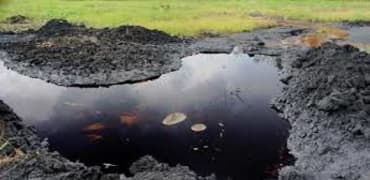FG, FAO Unveil N200 Million Initiative to Boost Fish Farming and Cut Imports
FG, FAO Unveil N200 Million Initiative to Boost Fish Farming and Cut Imports
By Achimi muktar
n a bold move to close Nigeria’s widening fish supply gap and empower local aquaculture, the Federal Government and the Food and Agriculture Organization (FAO) have launched a N200 million initiative aimed at scaling up fish farming across the country.
Unveiled at the thriving Eriwe Fish Farming Cluster in Odogbolu, Ogun State, the initiative—Scaling Fish Farming through Finance—is set to provide critical financial support to struggling fish farmers and reduce Nigeria’s heavy dependence on fish importation.
“With partnerships like this, we’ll be able to support our farmers and help bridge the fish production deficit,” said Wellington Omoragbon, Director of Fisheries and Aquaculture at the Federal Ministry of Marine and Blue Economy, represented by Paul Opuama.
Despite Nigeria’s abundant water resources, fish farmers have long struggled to keep up with rising production costs, particularly skyrocketing feed prices. According to the Ministry, limited access to affordable financing has made it nearly impossible for small-scale farmers to expand operations and meet demand.
“One of the major challenges confronting fish farmers is finance, especially the soaring prices of feeds,” Omoragbon noted.
The newly launched programme aims to solve that—starting with 40 farmers who will each receive between N2.5 million and N5 million in funding during the pilot phase.
Nigeria currently imports over 2 million metric tonnes of fish annually, a figure FAO’s Representative to Nigeria and West Africa, Mr. Koffy Kouacou, called “unsustainable.”
“We must take urgent action to reverse our over-reliance on imported fish,” Kouacou warned.
Backed by the European Union, the initiative—part of the larger FISH4ACP project—seeks to boost Nigeria’s local fish production capacity by strengthening the financial and operational capabilities of fish farmers.
According to Hugh Briggs, Programme Manager for Agriculture at the EU Delegation to Nigeria, the FISH4ACP project is currently being implemented in 12 countries globally, but Nigeria stands out as the largest beneficiary.
“Nigeria is receiving the lion’s share of the grant, and this project is expected to make a significant impact on aquaculture development,” Briggs said.
The collaboration includes not just the Federal and Ogun State governments but also partnering financial institutions committed to helping farmers scale up their businesses, create jobs, and boost local fish availability.
As the project gains traction, its impact is expected to extend far beyond the initial 40 beneficiaries. The goal? Build a self-sufficient aquaculture industry, generate rural employment, and make Nigerian-grown fish the standard on every table.
With concrete support finally reaching the ponds, Nigerian fish farmers may just be on the brink of a financial and agricultural breakthrough.


















